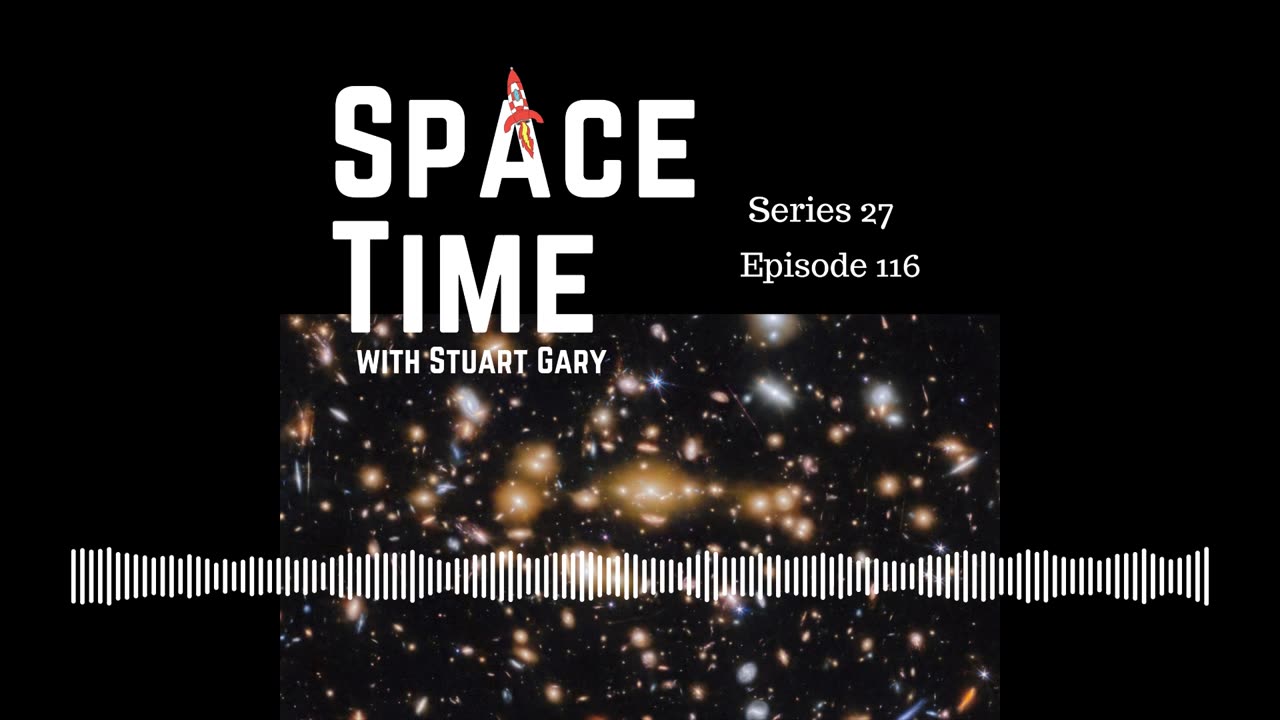Premium Only Content

Discovery of More Black Holes in the Early Universe
SpaceTime Series 27 Episode 116
*Discovery of More Black Holes in the Early Universe
A groundbreaking study using the Hubble Space Telescope has revealed a significantly higher number of supermassive black holes in the early universe than previously thought. Published in the Astrophysical Journal Letters, this research offers new insights into the formation of these ancient black holes shortly after the Big Bang. The findings suggest that these colossal black holes, some over a billion times the mass of our sun, may have formed directly from the collapse of massive gas clouds or through rapid mergers of smaller stellar mass black holes.
*New Volcano Discovered on Jupiter’s Moon Io
Astronomers have identified a new volcano on Jupiter's moon Io, the most geologically active body in the solar system. The discovery was made using images from NASA's Juno mission, revealing the volcano's extensive lava flows and sulphur deposits. This new feature adds to Io's already impressive count of over 400 active volcanoes, offering more data to understand its intense geological activity driven by tidal forces from Jupiter and its other moons.
*Confirming the Mass of the W Boson
Physicists at CERN have confirmed the mass of the W boson, a fundamental particle in the Standard Model of particle physics. The new measurement of 80,360.2 mega electron volts, with a margin of error of 9.9 mega electron volts, aligns with theoretical predictions. This confirmation follows an unexpected measurement by Fermilab and resolves a multi-year mystery, reinforcing the accuracy of the Standard Model.
www.spacetimewithstuartgary.com
www.bitesz.com
Become a supporter of this podcast: https://www.spreaker.com/podcast/spacetime-with-stuart-gary--2458531/support.
-
 LIVE
LIVE
SpartakusLIVE
8 hours agoMy BICEPS are NOT photoshopped
3,029 watching -
 1:15:26
1:15:26
Kim Iversen
10 hours agoFinal House COVID-19 Report: Claims Vaccines Were A Disaster But Operation Warp Speed Was a Success...
69.9K111 -
 1:14:19
1:14:19
The Anthony Rogers Show
12 hours agoEpisode 248 - Light Language & Intergalactic Gifts In The Higher Realms
52K3 -
 2:38:12
2:38:12
Tundra Gaming Live
8 hours ago $3.26 earnedThe Worlds Okayest War Thunder Stream
37K1 -
 10:57
10:57
Tactical Advisor
11 hours agoNEW Compact Echelon | Springfield 4.0 C (FIRST LOOK)
72.3K1 -
 1:23:56
1:23:56
Glenn Greenwald
11 hours agoBiden Pardons Hunter After Months Of Vowing He Wouldn't; Plus: Biden's Career Imprisoning Crack Addicts | SYSTEM UPDATE #374
125K128 -
 1:28:16
1:28:16
Barry Cunningham
7 hours agoBANNED ON YOUTUBE SERIES: Inside The Border Crisis! Barry Cunningham Interview With Border Agent
62.4K87 -
 2:18:59
2:18:59
WeAreChange
9 hours agoCOUP ATTEMPT?! Dems Trying To Usurp Control Of Military In Move Against Trump
120K35 -
 1:17:41
1:17:41
Josh Pate's College Football Show
8 hours ago $2.98 earnedCFP Rankings Reaction | Conference Championship Predictions | New JP Poll | Portal Chaos Ahead
39.5K1 -
 59:27
59:27
The StoneZONE with Roger Stone
9 hours agoWill America’s Sheriffs Aid the Deportation of Violent Illegals? w/ Sheriff Richard Mack | StoneZONE
36.7K3